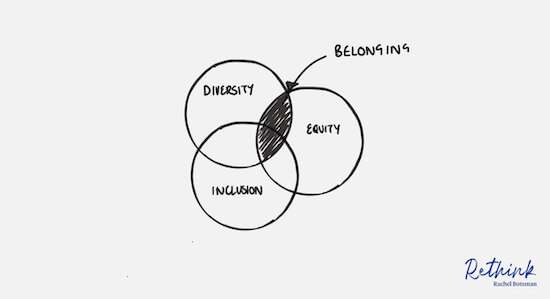
In November 2019, I attended an event outside London called BaseCamp. At this event, attended by around 100 people from a number of countries, we each selected a group to work within where we would focus on a particular global issue. I chose to be part of the group (facilitated by my friend Kay Scorah, who can hear as a past guest on WhatComesNextLive here ). Our group focussed on Diversity and Inclusion.
It was a wonderful two days, within which the most powerful part was towards the start. We spent quite some time seeking to agree on the definition of the words Diversity and Inclusion, until the resident artist in the group, a dancer, spoke up. She noted that she is dyslexic. Yes, she can work with words, but, as she described, it typically took her about five times as long to process words. As a result, she felt very much excluded by the conversation so full of words around fine-tuning of language definitions.
To fast forward, the next day we did our presentation to the broader group in the form of interpretative movement. Each of the ten of us felt we had played a full part in our collective process and, more than anything, we felt a sense of belonging.
This was a great culmination of the two days focussed on being part of a more diverse and inclusive world (which also means one there is equity of opportunity).
I, therefore, love this venn diagram I saw this week in a tweet from Rachel Botsman, as it visually captures much of what I came to feel and think from that event.
However, I add a note of caution to all of this.
From that BaseCamp event, I also left feeling differently about the energy behind the words Diversity and Inclusion.
In a world where so much has always been controlled by those with power, authority, wealth, control, words like Diversity and Inclusion still can have the ring of control, as if the powerful can choose to include, can choose to focus on diversity, but that it can still be something they grant at their choice (or not).
In short, as we commonly hear, Diversity, Inclusion, Equity initiatives can sometimes land as not from an authentic space. All too often I hear this from people who are the “diversity hires”. The phrase “tick box” exercise is also commonly heard.
So, want to know when you are getting it right around these initiatives? When people say they feel they belong, then you are not only doing the right thing, you are doing it for the right reasons.
